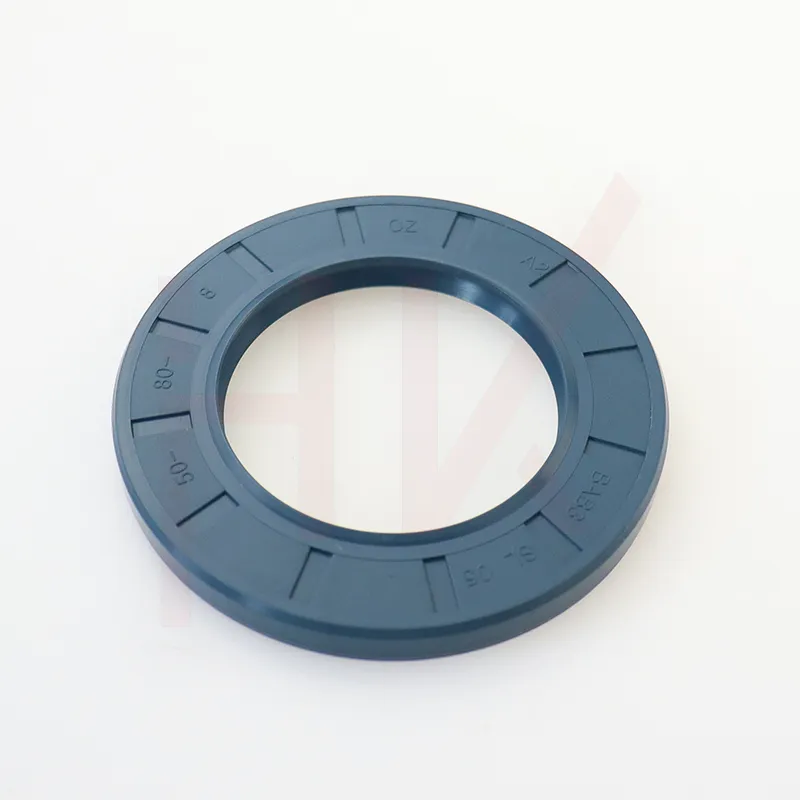નવેમ્બર . 17, 2024 06:16 Back to list
what is the function of oil seal
Understanding the Function of Oil Seals
Oil seals, also known as oil seals or rotary seals, play a crucial role in various mechanical systems. They are designed to contain lubricating oil within rotating shafts and prevent contaminants from entering the system. This simple yet vital component is integral to the longevity and efficiency of machinery, found in everything from automobiles to industrial equipment.
Structure and Design
An oil seal generally consists of a few key components a sealing lip, a metal outer casing, and a spring. The sealing lip is made of elastomeric materials, which provide flexibility and resilience. As the shaft rotates, the sealing lip makes contact with it, creating a barrier that minimizes leakage. The metal outer casing ensures the seal is securely held in place, while the spring applies constant pressure to the sealing lip to maintain contact with the shaft.
Primary Functions
1. Fluid Containment The most essential function of an oil seal is to prevent the leakage of lubricating oil. In machinery, oil is used to reduce friction, minimize wear, and dissipate heat. Without proper containment, oil would leak out, leading to inadequate lubrication and eventually causing component failure.
2. Contaminant Exclusion In addition to retaining oil, oil seals also prevent dirt, dust, water, and other contaminants from entering the lubrication system. Contaminants can be detrimental to machinery, leading to accelerated wear and damage. By keeping contaminants out, oil seals help maintain the integrity of the lubricant and the components it protects.
what is the function of oil seal

3. Pressure Maintenance Many applications involve considerable pressure built up within the machinery. Oil seals help maintain this pressure by creating a secure seal around the rotating shaft. This is particularly important in hydraulic systems where pressure is essential for operation. By preventing oil from escaping, the seals help ensure that the system functions effectively under pressure.
4. Noise Reduction Oil seals also contribute to noise reduction within machines. By maintaining a proper seal, they help limit vibrations and noise generated by the moving components. This is particularly noticeable in automotive applications, where effective sealing can lead to a quieter ride.
The Importance of Maintenance
While oil seals are robust and designed to last, they are not immune to wear and tear. Factors such as extreme temperatures, exposure to chemicals, and mechanical stresses can degrade the sealing material over time. Regular inspection of oil seals should be part of any maintenance program to ensure that they remain effective. Signs of failure can include oil leaks, noise, or an overall reduction in performance.
Conclusion
Oil seals serve a fundamental purpose in ensuring the efficient operation of machinery. By containing lubricating oil, excluding contaminants, and maintaining pressure, they significantly contribute to the longevity and reliability of mechanical components. Understanding their importance can help in better maintenance practices, ultimately leading to more efficient and trouble-free operation. Whether in automotive engines or industrial machines, the role of oil seals cannot be overstated, as they help ensure that equipment runs smoothly and efficiently for years to come. Invest in regular maintenance to prevent costly repairs and downtime, and always choose high-quality seals to ensure optimal performance in your machinery.
-
TCN Oil Seal Metal Ring Reinforcement for Heavy Machinery
NewsJul.25,2025
-
Rotary Lip Seal Spring-Loaded Design for High-Speed Applications
NewsJul.25,2025
-
Hydraulic Cylinder Seals Polyurethane Material for High-Impact Jobs
NewsJul.25,2025
-
High Pressure Oil Seal Polyurethane Coating Wear Resistance
NewsJul.25,2025
-
Dust Proof Seal Double Lip Design for Construction Equipment
NewsJul.25,2025
-
Hub Seal Polyurethane Wear Resistance in Agricultural Vehicles
NewsJul.25,2025
-
The Trans-formative Journey of Wheel Hub Oil Seals
NewsJun.06,2025
Products categories
















